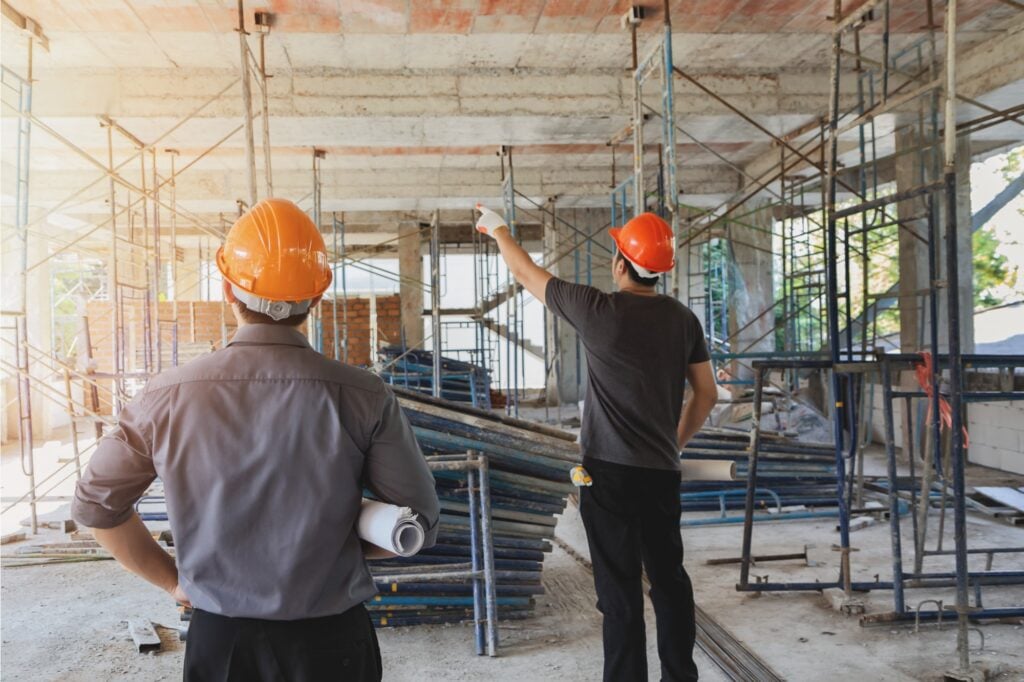- Home
- About Us
- Member Profiles
- Help and Advice
arrow_drop_down
- Conciliation
arrow_drop_down
- Guild magazine
Avoiding Disputes
Avoiding Disputes
December 2018
In this article we look at how to avoid disputes with your clients.
One of the biggest causes of disputes is lack of communication and in particular confirming agreements and instructions in writing. The following will assist you in avoiding disputes:
- Prior to estimating for the works arrange a site visit this enables you to understand the following:
- Your client’s requirements. Do they require you to match internal or external materials? If so, some materials may be non-standard or purpose made and therefore, have a cost implication
- Access, can you get your vehicle close by, can you get in a small digger, if not there will be a further cost implication
- Any services to be moved i.e. Radiators, electrical sockets or meters (electrical and gas). Do not forget water mains and drainage.
- Is your client supplying any materials within the work? Let your future client know of delay implication if materials are not on site when you require them.
- Keep accurate notes of this meeting
Check with your prospective client if Local Authorities approvals are required such as:
- Planning permission.
- Building regulations approvals.
It would be advisable to ask your client to write to the local authority to check the above and have a letter on file from the local Authority, confirming one way or the other.
Other requirements may be:
- Party Wall Award. As required under the Party Wall etc Act 1996.
- Construction (Design and Management) Regulations 2015. Now required for private property owners or if the work period is more than 30 days or 500 man hours.
Set out your estimate/quotation clearly in writing listing the following:
Work to be carried out.
- Your contract sum state clearly including or excluding V.A.T.
- Start and Completion Dates.
- Agree firm delivery dates for client supply items.
- Procedure for variation of the work.
- Payment Clause.
Once you have been awarded the work it is advisable to have a pre-contract meeting with your client a week or so before the works commence to discuss the following:
- Working days and hours to be worked.
- Water and electricity for the work.
- Area to be allowed for materials storage.
- Parking arrangements.
- Rubbish container sitting.
- Agree regular meeting dates with your client (weekly bi-weekly or monthly) as discussed below.

Confirm agreements in writing
Now you are on site and started the work we would advise you to keep accurate records as follows:
- Weekly report sheets: These confirm the number of workmen on site and what they are doing. Any Visitors and any reason for delays.
- Instruction sheet: These record any instructions given to you by your client, supervising officer or Building control officer. These sheets can be used to determine whether any variations have occurred.
If it is decided that there is a variation in the work and there is a cost implication this should be confirmed in writing to your client within 7 working days and stating any delays this has caused and any effect on your completion date.
Depending on the length of the contract period agree to hold regular meetings with your client to enable you to discuss some or all of the following:
- Reason for any delays.
- Any Variation in the work and the effect on the contract period.
- Any information required from the client
- Any reasons for concern on the contract period (client supply items).
- Any other relevant items
- Instructions received from Building Control officer.
Confirm these minutes in writing and issue to all relevant parties.
Always remember you are working on other person’s property so allow time to clean up at the end of each day and particularly at the end of the work.
Allow to repair any damage caused (this is where protection is important).
It would be advisable to take regular digital camera photos (including before commencement).
These photographs will enable you to record any existing damage at the property before you commence work.
Remember communication is the key to a successful project.

